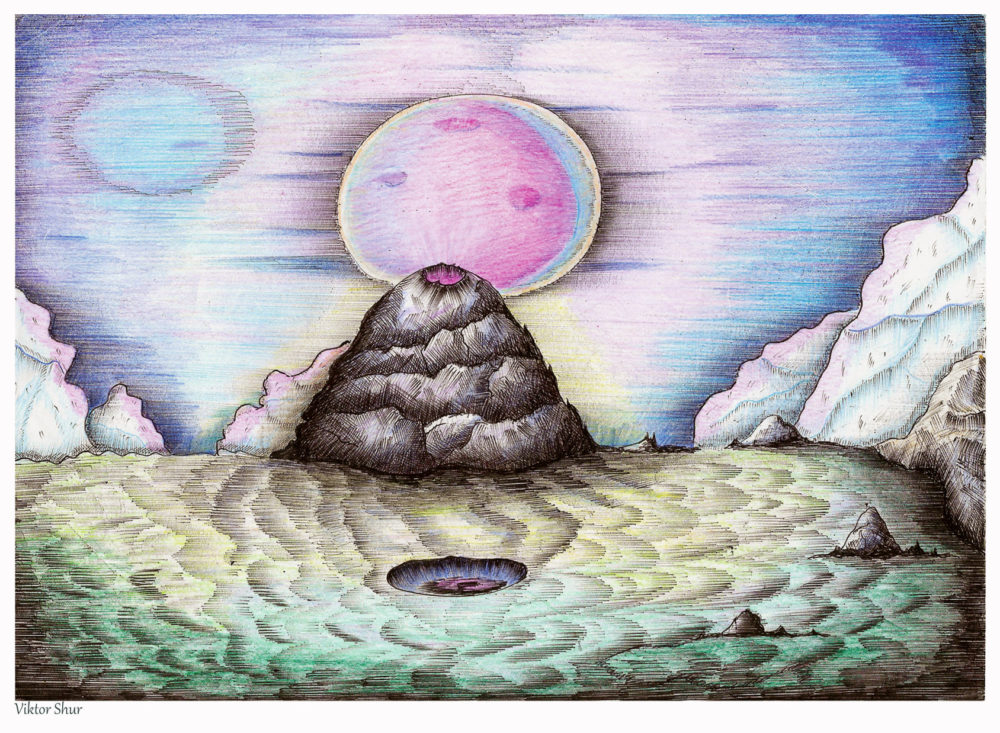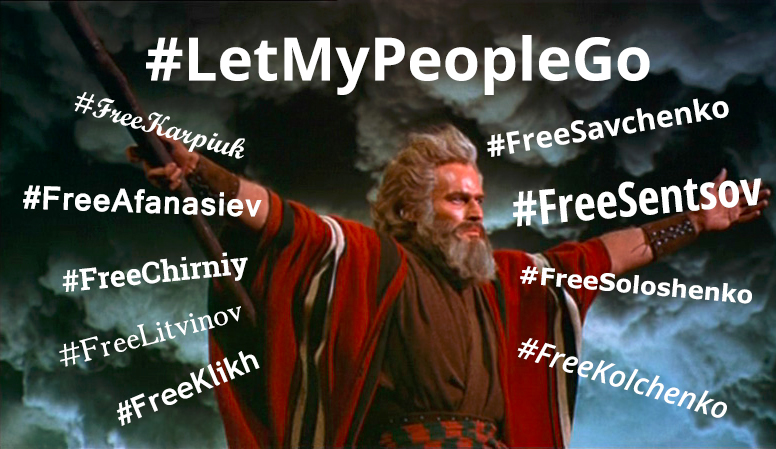Take a peek at exclusive photos from Atelier Soldina, an exposition space in Berlin, which saw the opening of an exhibition featuring the masterpieces of Viktor Shur, a 64-year-old Ukrainian political prisoner incarcerated in the Russian Federation since 2014.

As his daughter, Olha says, her father in prison is drawing the life he is not living.


Shur, a jeweler by profession, has drawn many pictures in prison. Often, he sends pictures drawn with a ballpoint pen drawn either from memory or copied from postcards to various people from around the world corresponding with him.

The exhibition was organized by the German Letters to Political Prisoners initiative. The attendees had a chance to write letters to Mr. Shur, who has been deprived of liberty since 7 December 2014.
You can also send a letter to Viktor Shur or any other Ukrainian hostage held in Russia or occupied Donbas by joining the Winter letter marathon of the #LetMyPeopleGo campaign.

Viktor Shur is one of many Ukrainians imprisoned on espionage charges in the context of Russian aggression, both armed and ideological, against Ukraine.


In December 2014, Mr. Shur went on a work trip to Briansk Oblast, Russia. But did not return home. As it turned out, he was forcibly seized by the Russian FSB on the Russia-Ukraine border and accused of state treason and collaboration with the security services of a foreign state (Ukraine).


Allegedly, Mr. Shur photographed a strategically important field with flooded mines and a military aerodrome. According to the locals who let their livestock graze there and Shur himself, this field has no signs of being a secret object.

According to the man, the FSB coerced him into self-incriminating confessions by pumping him with psychotropic drugs and applying torture. Viktor Shur was granted a state lawyer, who served the interests of Russia but not the defendant.

Therefore, in October 2015, Viktor Shur was sentenced to 12 years of maximum security imprisonment.

Particular espionage charges against a Ukrainian citizen are no coincidence. First, they enable the FSB to “shine bright” by showcasing their “deeds” in form of catching “spies.” Second, these accusations serve the ideological purpose of Russian aggression against Ukraine and blacken its citizens. Last, espionage cases allow for closed court hearings, so that violations of the defendant’s rights cannot be monitored.

Russia's renowned Memorial Human Rights Centre recognizes features of political persecution in Mr. Shur’s case and thinks he may be regarded as a political prisoner.

All photos by Atelier Soldina.

And if you write a letter to Viktor Shur, you just might receive an answer with such delightful sketches as our editor Christine Chraibi got:



Find out how to send a bit of warmth and support to Ukrainian political prisoners of the Kremlin here:
This January, send a letter to a Ukrainian political prisoner of the Kremlin





